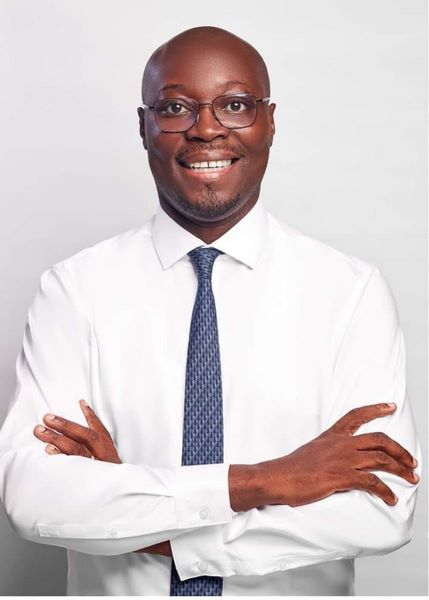In the history of a nation, there are moments of severe trial that demand more than ordinary political leadership—they demand the precise intervention of an architect-statesman.
When Dr. Cassiel Ato Forson assumed office as Minister for Finance on January 22, 2025, Ghana faced such a crossroads. The economy, weighed down by crippling debt and a crisis of confidence, required not just a manager but a master technician with the intellectual courage to execute a surgical and lasting fiscal reset.
Dr. Forson’s performance in the months that followed is not a story of minor adjustments; it is a narrative of intellectual rigor, decisive execution, and the swift restoration of Ghana’s credibility both domestically and internationally.
What sets Dr. Forson apart is the seamless blend of academic authority and political mastery. Unlike many finance ministers who learn on the job, he arrived with a blueprint for national recovery, crafted during his years of rigorous study.
His PhD in Finance from KNUST, earned in 2020, focused precisely on Ghana’s debt sustainability, concluding even then that the nation’s debt was on an unsustainable trajectory.
The policies he is now implementing are not speculative—they are the calculated application of his own evidence-based conclusions. Complementing this foundation is his qualification as an Oxford-trained Tax Professional (MSc in Taxation) and his experience as Ghana’s Alternate Governor to the IMF, where he played a key role in negotiating the 2015 Extended Credit Facility (ECF) Programme. This technical expertise allowed him to hit the ground running, essential for a nation in crisis.
A true measure of leadership is the speed and clarity with which one addresses public pain. Dr. Forson’s first actions were both fiscal and moral, aimed at restoring public trust.
In his inaugural address, he declared a clear mission: a “war against wasteful expenditure.” This vision became the cornerstone of his early success.
A decisive move came with the announcement—and subsequent parliamentary approval—of the scrapping of the Electronic Transfer Levy (E-levy). This unpopular tax had become a source of public frustration.
The government’s ability to remove a major revenue source, while simultaneously implementing rigorous cost-control measures to eliminate wasteful spending, demonstrated strategic confidence and renewed the social contract with Ghanaians.
Beyond this tactical victory, Dr. Forson’s crowning achievement is the structural and legislative reform he engineered to make fiscal discipline permanent.
Through amendments to the Public Financial Management Act, 2016 (Act 921), he introduced two pillars of long-term stability: the Debt Rule, legally binding Ghana to reduce its debt-to-GDP ratio to 45% by 2035, and the Operational Rule, mandating an annual primary surplus of at least 1.5% of GDP. Supported by the establishment of an Independent Fiscal Council, these measures shield financial decisions from short-term political expediency and provide long-term assurance to investors and future generations.
To curb the chronic buildup of unpaid government commitments, Dr. Forson also implemented stringent controls requiring prior approval from the Ministry of Finance for all government contracts.
This discipline immediately paid off: in a high-level meeting with the nation’s bankers, he confidently assured that the government had built “sufficient financial buffers” to meet every obligation under the 2025 Domestic Debt Exchange Programme (DDEP), stating firmly, “We do not intend to default.” This decisive action stabilized the domestic financial sector and restored confidence in Ghana’s sovereign commitments.
International recognition soon followed. After the successful Staff-Level Agreement at the Fifth Review of the IMF ECF, global financial institutions spoke in unison. Moody’s upgraded Ghana’s sovereign credit outlook, praising the government’s fiscal discipline and structural reforms.
The IMF and World Bank commended the Ghanaian economic management team for “prudent fiscal stewardship and a coherent policy framework,” while IMF Managing Director Kristalina Georgieva personally acknowledged Dr. Forson’s “strong commitment to economic reforms.”
Dr. Forson’s tenure is a testament to disciplined, scholarly leadership applied to the realities of political economy. By linking his PhD research on debt sustainability to legislative reforms like the PFM Act’s debt rule, and directing all Annual Budget Funding Amount (ABFA) revenues toward productive infrastructure projects, he has positioned Ghana to grow its way out of debt.
In transitioning Ghana from fiscal anxiety to structural assurance, Dr. Forson has proven himself the essential scholar-statesman for this era. His legacy is not only the stability he has restored but the foundation he has laid for “The Ghana We Want”—a nation built on prudence, discipline, and globally validated confidence.
He is a Finance Minister whose judgment the nation can trust, regardless of opposition or misunderstanding, and whose tenure is already shaping the future of Ghana’s economic destiny.
ALSO READ:
BoG sets June 2026 deadline for licensing of digital credit and…
Investor confidence rebounds as Ghana’s economy gains momentum – Mahama


